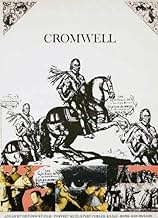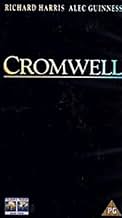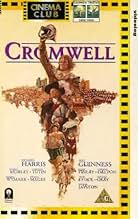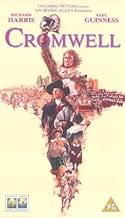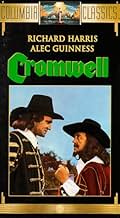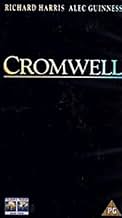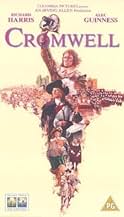Oliver Cromwell ne supportant plus la politique du Roi Charles Ier et l'égoïsme de la classe dirigeante mène une guerre civile pour faire du parlement l'autorité suprême d'Angleterre.Oliver Cromwell ne supportant plus la politique du Roi Charles Ier et l'égoïsme de la classe dirigeante mène une guerre civile pour faire du parlement l'autorité suprême d'Angleterre.Oliver Cromwell ne supportant plus la politique du Roi Charles Ier et l'égoïsme de la classe dirigeante mène une guerre civile pour faire du parlement l'autorité suprême d'Angleterre.
- A remporté 1 oscar
- 2 victoires et 5 nominations au total
Histoire
Le saviez-vous
- AnecdotesWhen writer / director Ken Hughes said to Richard Harris that no self-respecting Irishman should ever play Oliver Cromwell, Harris laughed.
- GaffesCromwell was not one of the Members of Parliament named for arrest in the King's warrant. Cromwell was not present in Parliament at the time the King and his troops entered the House of Commons. The scene of he alluding that The King is a traitor actually happened with John Elliott some ten years prior.
- Citations
King Charles: I do swear that hold this England and its laws dearer to my heart than any here. But gentlemen, if you would reduce me to a figurehead - a puppet king, manipulated by parliament - how then would I serve my country? What manner of king would I be?
Oliver Cromwell: I am persuaded, Your Majesty, that England must move forward to a more enlightened form of government, based upon a true representation of a free people. Such an institution is known as... "democracy", sir.
King Charles: Democracy, Mister...
Oliver Cromwell: Cromwell, sir.
King Charles: Democracy, Mister Cromwell, was a Greek drollery based on the foolish notion that there are extraordinary possibilities in very ordinary people.
Oliver Cromwell: It is the ordinary people, my lord, who would most readily lay down their lives in defense of your realm. It is simply that "being ordinary", they would prefer to be asked - and not told.
- ConnexionsFeatured in 52nd Annual Academy Awards (1980)
Secondly, yes there is some idea conveyed of the turmoil of the period; the Levellers get a slight, if ridiculously truncated, mention.
However, anyone who knows the slightest snippet about the period must have left the TV screen or whatever nothing but annoyed by the gross licence taken with the events of the civil war. And it is not just the fact that I have studied the period in depth that makes such glaring inaccuracies as:>
Cromwell being named as one of the Five Members, he wasn't.
Cromwell even being present at Edgehill, let alone rescuing the day. Neither are true. At the same time the "arrangement" between the officers of the opposing side which was so crucial to the film never happened; and, at the end of the day the Royalists did not actually win the battle. It was a draw. Okay, I can live with some details being slightly wrong, but the outcome of the entire engagement...?
Why miss out the most bloody, viscious and, many would say, crucial battle of the war? At least at Marston Moor Cromwell was actually there.
Naseby, too, was grossly misrepresented: a) Cromwell did not command the parliamentary forces, Fairfax did; and b) in reality the Royalist force was just over half the size of that of parliament: hardly the stunning victory of a smaller force led by Cromwell as portrayed in the film.
The Civil War was in no way Catholic versus Protestant: both sides were Protestant and, to be technical, both were mostly heartily opposed to Charles' Laudianism (a kind of mixture of the two). However in 1970 some scholarship did maintain this so this mistake can perhaps be understood.
These are just some of the many nitpicking points that seem to preclude the idea that "Cromwell" provides "an excellent history lesson". However, "Appocalypse Now" and "The Thin Red Line" are both examples of historically inaccurate but still highly effective and powerful films. How come "Cromwell" fails on this count? Well, on the one hand neither of these, more recent, films even claim to portray real people -"Cromwell" does and therefore its stubborn disregard of the truth cannot be ignored. Then, on the other hand, if the film attempts to be more than just a reasonably nice looking swashbuckler (which it does) and to really look into the character of its protagonists then surely its case is harmed by these shocking errors. For example, how can the film attempt to portray Cromwell as a man made by his times (rather than the other way around) when it suggests that he was a significant player from the start. Before the outbreak of Civil War Cromwell had made just one vaguely significant speech in parliament. He was never contacted by Pym before the call of Parliament and there was no question of him ever leading the armies of Parliament until the retirement of Fairfax on the eve of the (curiously unmentioned) Second Civil War. Indeed he did not become official leader of the country until 1653. His rise to power was a great surprise to him and his countrymen.
Finally, why miss out Ireland completely from the equation when surely there is no more interesting aspect to the man's character than his opinions on religion?
Cromwell deserves a more accurate cinematic perspective, and surely half of the problem is that this film attempts to cram the ten most monumental years of British history into three hours.
Definately a "could do better".
- jonhealey
- 14 mai 2001
- Lien permanent
Meilleurs choix
Détails
- Date de sortie
- Pays d’origine
- Langue
- Aussi connu sous le nom de
- Cromwell - Der Unerbittliche
- Lieux de tournage
- sociétés de production
- Consultez plus de crédits d'entreprise sur IMDbPro
Box-office
- Budget
- 3 750 000 £ (estimation)
- Durée2 heures 19 minutes
Contribuer à cette page




